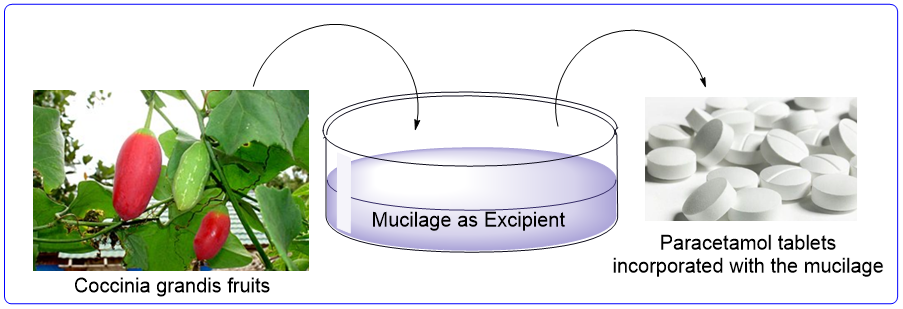Mucilage from Coccinia grandis was extracted, isolated by maceration technique and precipitated, accordingly. The mucilage was evaluated for its physicochemical, binding, and disintegrant properties in tablets using paracetamol as a model drug. The crucial physicochemical properties such as flow properties, solubility, swelling index, loss on drying, viscosity, pH, microbial load, cytotoxicity were evaluated and the compatibility was analysed using sophisticated instrumental methods (TGA, DTA, DSC, and FTIR). The binding properties of the mucilage were used at three different concentrations and compared with starch and PVP as standard binders. The disintegrant properties of mucilage were used at two different concentrations and compared with standard disintegrants MCCP, SSG, and CCS. The wet granulation technique was used for the preparation of granules and was evaluated for the flow properties. The tablets were punched and evaluated for their hardness, friability, assay, disintegration time, in vitro dissolution profiles. In vitro cytotoxicity study of the mucilage was performed in human embryonic kidney (HEK) cell line using cytotoxic assay by MTT method. The outcome of the study indicated that the mucilage had good performance when compared with starch and PVP. Further, the mucilage acts as a good disintegrant than MCCP, SSG and CCS to paracetamol tablets. Moreover, the in vitro cytotoxicity evaluation results demonstrated that the mucilage is non-cytotoxic to human cells and is safe.

